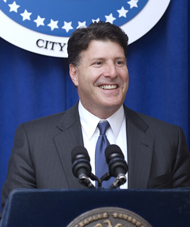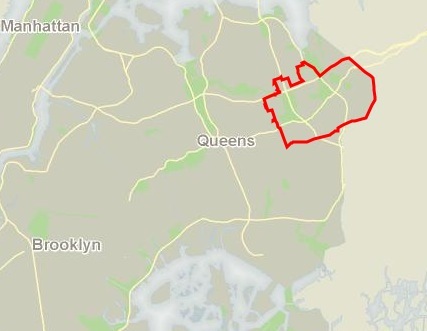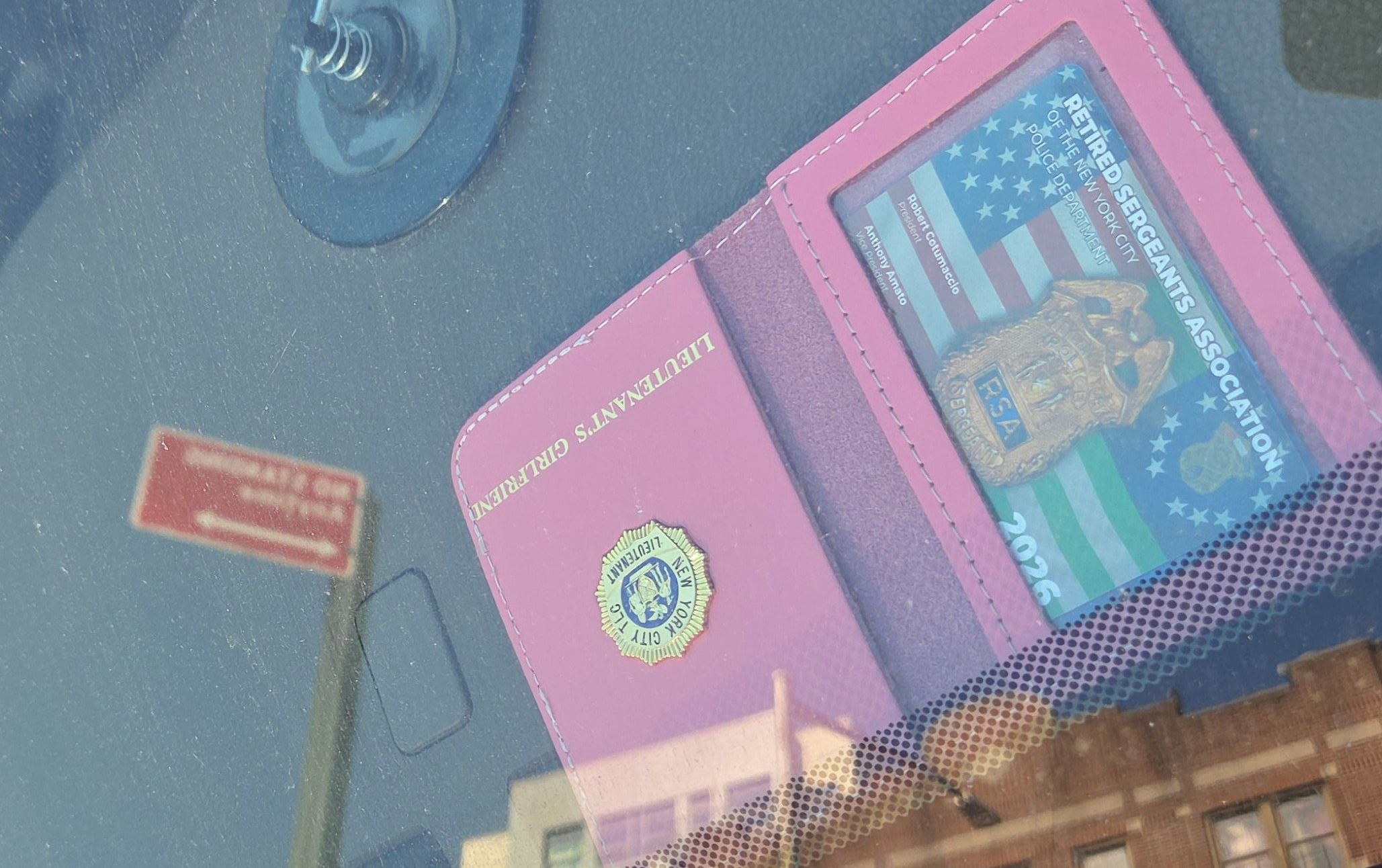
Several surveys this year by top polling organizations have found citywide support for bike lanes. And in Park Slope and the Upper West Side, questionnaires put out by local elected officials have shown consistent neighborhood-level approval for new bike infrastructure. Now, another member of the City Council has found widespread enthusiasm for the city's bike lane program among his constituents -- and he doesn't represent the heart of the NYC bike belt.
In fact, the district in question upends the assumption, held by certain members of the tabloid media, that "ordinary New Yorkers" aren't interested in safer streets for cycling. It's the turf of Council Member Mark Weprin, whose Queens district hugs the Nassau County line. A recent survey found that 61 percent of Weprin's constituents support the city's installation of bike lanes.
"I was somewhat surprised at the results," said Weprin (not to be confused with his brother, Assembly Member David Weprin, who recently lost the race for Anthony Weiner's seat in Congress and fought hard against congestion pricing when he sat in the City Council). "You tend to hear from the naysayers. When you go out to civic meetings, a lot of people complain about bike lanes, but obviously that's not the majority."
The survey went out by e-mail to a list of thousands of Weprin's constituents, asking: "Do you support the network of bicycle lanes that the New York City Department of Transportation has installed on city streets?" About 400 people responded. While the methodology wasn't scientific, Weprin guessed that if anything, it probably oversampled the high-intensity opinions of the bike lane opponents. "People seem to like them," said Weprin, "including myself." In the latest Q-poll, which uses random sampling and other scientific statistical techniques, 53 percent of Queens residents said they supported the expansion of the bike lane network.
"It always helps to know that your constituents are behind you when you support an issue," Weprin said when asked how the survey would affect his actions moving forward. While he cautioned that there might be problems with the location of any given bike lane, Weprin said it's important "to realize that we have too many cars in this city and it would be more environmental and healthier to have more people ride bikes."
He also praised the city's upcoming bike-share program, again reserving the right to critique the particulars of its implementation, should issues arise. "In theory, it's a great idea to have bike-sharing and have people have an alternative to taking taxi cabs and even subways and buses, because those too are overcrowded on occasion," said Weprin.






